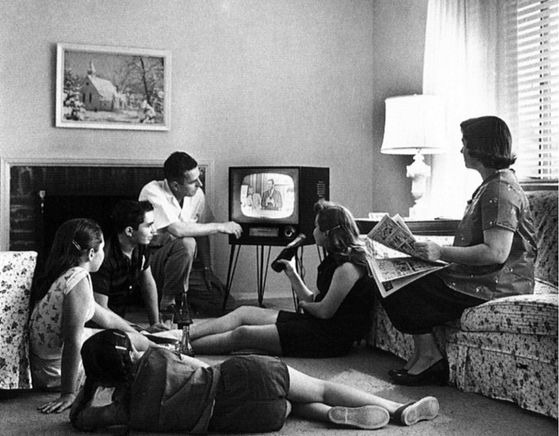Grieving for What We Never Had in Less Than Ideal Families.

A family reunion can be a celebratory and joyous time for some, but not for others.
Not everyone has been blessed with patient, loving, and attentive family members. In cases where our upbringing had been abusive, neglectful, or lacking in some ways, we may experience unease and a myriad strong emotions when we interact with our family. If there had not been a history of real emotional closeness, the interests that they now show in our lives can feel phony.
Blocked by their defenses and our frustration, there can be little authenticity. Even if we love each other enormously deep down, real closeness may seem inaccessible.
After having spent years trying to break free from the chain of pain and guilt, you have successfully walked away and built a life outside of home — yet somehow, minutes into a reunion can have you regress back into feeling and behaving like a vulnerable child or a raging teenager.
The first and the most important step towards emotional freedom is grieving.
Because grieving involves pain, our default position is to run away. This is usually unconscious, but we would do anything just to avoid the deep pain of not having the childhood that we have always wanted. Rather, we use things like comfort-eating, excessive drinking, self-medicating, and all sorts of sensation-seeking and emotion-numbing behaviors to mask our deep longing for love, safety and belongingness.
This mourning process involves allowing ourselves to feel very sorry, and sad, for not having the what might have been. Often, people confuse this with self-pity or as a passive acceptance of defeat. Yet the opposite is true, for nothing is more heroic than facing reality head-on.
Even with what they knew best, our parents’ limited capacities mean that they were not able to protect us from the abrasion of bullies, to celebrate our gifts, honor our intuition, or cherish our sensitivities. Grieving is also not about blaming, but simply an acknowledging the tragic nature of events.
If anger comes up in this process, we shall honor that too. Such anger is a healthy, appropriate response to an unjust situation — no children should have to go through such pain and loneliness.
Our pains and insults were real, but these wounds are only toxic if they remain invisible. Once we have exposed them, acknowledged them, and call them for what they are, they gradually cease to have power over us. Although we can never completely stop feeling sad for our lost childhood, the intensity of our pain and anger will gradually cease.
In truth, grief is the best medicine for our pain. It is a poignant and sacred process that offers true liberation in the end.
Walking the Bridge of Grief
Intellectually, we knew that our parents would never be the loving, attentive and sensitive people that we had needed them to be. Emotionally, we have been hurt and let down again and again. And yet we keep trying. We compulsively seek what we would not get, and then we blame ourselves for the pain that occurs afterwards.
The grief for what we never had can drive us into a deep depression.For a while, we are plunged into the deep end of disbelief. Even after all these years, we cannot believe that we still had not given up.
One day, we reach a point of desolate sadness. It might be a particularly painful interaction, or something that they said or do, that finally breaks us open.
This is the moment at which we are being initiated to walk the bridge of grief. This is a bridge of inner mourning, full of mini-deaths and letting go. As we step onto the bridge, we drop, one after another, false expectations, fantasy, and hopes. We watch them sink into the water and get splintered into pieces by the rapid river beneath our feet. As we watch them go, we let them go.
As we walk on the bridge of grief, one layer after another we shed our skin. We feel ourselves becoming lighter and lighter.
As all shedding goes, this walk is not without pain.
This shedding pain is our growing pain. Our instinctive reaction is to be afraid of it. We may feel an urge to run back to the haven of our own shore. If we do, however, we fall back into the inferno of disappointment and resentment.
Therefore, the task now, my dear friend, is to walk on. One step at a time, tenderly, tenderly, but stoically and courageously.
Keep your heart open, even in hell. The temptation is to close your heart, and to run back to the false haven of numbness, of emptiness, repression and denial. The instruction is not to keep your heart open, and allow the grief, the resentment, and the despair to enter you. Let them come into your heart fully and completely.
Let them wash through you.
You may feel disorientated, empty, depressed, but I can guarantee you that these feelings will pass. And when they do, liberation is waiting for you, alongside bursts of life energy.
All that you have longed for, but are afraid of owning — emotional freedom, spiritual maturity, the capacity to love and be in the world, emotional resilience — are waiting for you on the other side of this bridge.
Painful as it might be, it is a worthy endeavor. When it comes to true forgiveness and liberation, there is no other journey more worthy than the bridge of grief, I promise you. So walk on, soldier, walk on.
***
Imi Lo is a consultant for emotionally intense and highly sensitive people. She is the author of Emotional Sensitivity and Intensity, available in multiple languages, and The Gift of Intensity (2021). Imi focuses on working with emotional intensity, high sensitivity, and giftedness. She has trained in mental health, psychotherapy, art therapy, philosophical counselling, and mindfulness-based modalities. As a coach, she works holistically, combining Eastern and Western philosophies with psychological and spiritual healing modalities such as Buddhism. Imi’s credentials include a Master in Mental Health, Graduate Diploma in Psychology, Bachelor of Social Science in Social Work, Certificate in Logic-based Therapy, and an Advanced Diploma in Contemporary Psychotherapy. She has been consulted by and appeared in publications such as The Psychologies Magazine, The Telegraph, Marie Claire, and The Daily Mail. Imi is the founder of Eggshell Therapy and Coaching, working with intense people from around the world.


